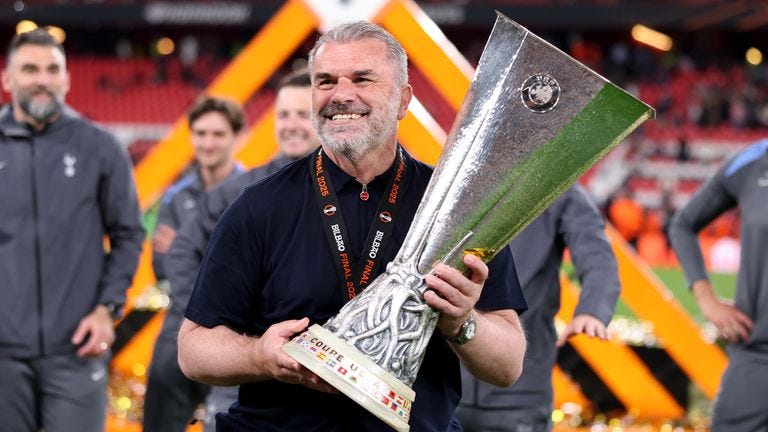Five reasons why Ange Postecoglou is the best coach in the world in any sport
COYS
I teared up after Tottenham Hotspur beat Manchester United on Wednesday in the Europa League final.
It’s not because it was a beautiful game. It possessed as much quality as an MLS match.
It’s not because I was released from a lifetime of pain. I’ve been a Tottenham fan for all of two seasons, and I get my agony from the Philadelphia Phillies.
And it’s no…
Keep reading with a 7-day free trial
Subscribe to Out in Left to keep reading this post and get 7 days of free access to the full post archives.



